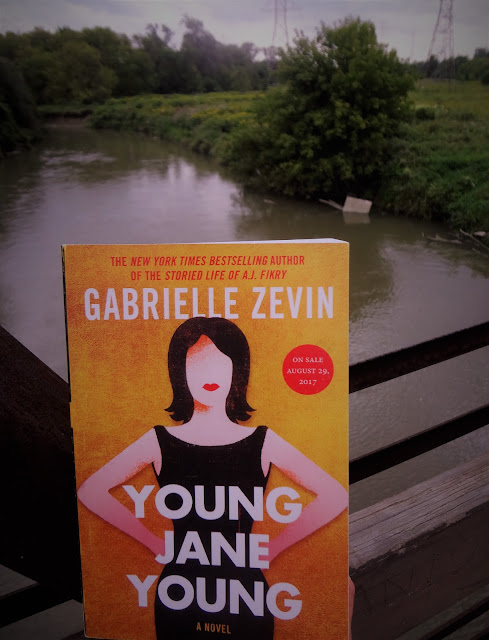Imagine changing your identity and starting your life over because of a highly publicized scandal. It's not so unimaginable, in this day and age of smart phones attached to everyone's hands. Getting caught on camera and video is (should be!) a concern for many. In Young Jane Young, a young, naive woman falls for a powerful politician in a Monika Lewinsky-esque type story. (She's even an intern.)
This modern novel tells the very old story of what has happened to women throughout time. Boy meets girl, but he's married, so they should stay away from each other, but against both their better judgement, they have an affair anyway. It becomes public, the strong focus is on her, she's slut shamed, and can't move on with her life. For all our supposed advancements, women are still vilified the most in affairs, and men's roles are diminished.
After realizing she can't escape being recognized, Aviva chooses a plain name the opposite of her unique one, moves from a big city in a southern state to a small town in north eastern one. In her new life, Jane becomes a wedding planner and develops insight into a wedding vs marriage. All the details she has to make seem so crucial: the flowers, the dress, and the room are just flowers, a dress, and a room. She ponders about the wedding being a Trojan horse, it's a distraction from the marriage. Couples choose all the things for their big day to set themselves apart, feel extraordinary - but getting married is ordinary.
I like Jane's take on orchids and marriage: "I really had liked him. Something I have learned, though, is that even a bad marriage isn't to be trifled with. My grandmother was married for fifty-two years, until my grand-father died. She used to say that a bad marriage was one that hadn't had enough time to get good again. And, not to put too fine a point on it, but since Schiele was a florist, I will tell you that there have been times when I thought my "pedestrian" orchid would never bloom again, when it looked as dead as dead can be. I think of a time when Ruby and I went to San Francisco on vacation, and I left it on the radiator, and every last leaf fell off. I watered it for a year, and first a root, and then a leaf,and maybe two years later, voila! Flowers again. And that's what I know about marriages and orchids. They're both harder to kill than you think. And that's why I love my grocery store orchid and don't do married men."
That's the hope I have for the orchids that are gifted to me, that they will bloom again!
Another dimension to this story is Jane's straight laced, by-the-book daughter, who discovers who her mom really is. I think her reaction was a bit extreme for her young age, but it's an example of why the novel is often described as feminist.
I enjoyed Gabrielle Zevin's witty, clever dialogue, and use of Yiddish like mensh and narishkeit. It adds a fun dimension to the characters of Jane's mother and grandmother.
In the end, the support Jane receives from her mom is a wonderful, touching thing. That way of defending your child is what we all want from our mom's.
I received Young Jane Young in a GoodReads giveaway.
Until next time,
Kara
